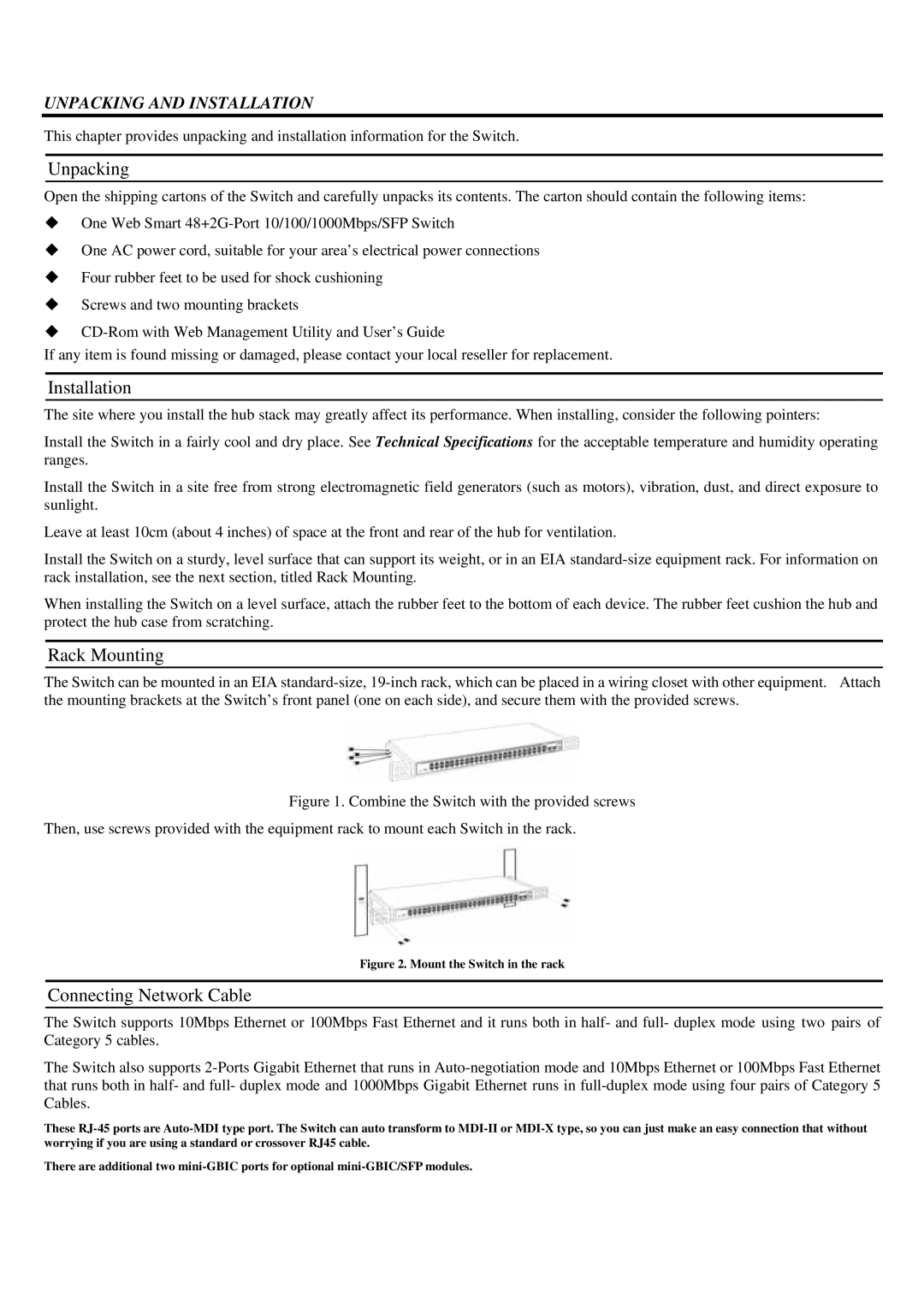
UNPACKING AND INSTALLATION
This chapter provides unpacking and installation information for the Switch.
Unpacking
Open the shipping cartons of the Switch and carefully unpacks its contents. The carton should contain the following items:
One Web Smart
One AC power cord, suitable for your area’s electrical power connections
Four rubber feet to be used for shock cushioning
Screws and two mounting brackets
If any item is found missing or damaged, please contact your local reseller for replacement.
Installation
The site where you install the hub stack may greatly affect its performance. When installing, consider the following pointers:
Install the Switch in a fairly cool and dry place. See Technical Specifications for the acceptable temperature and humidity operating ranges.
Install the Switch in a site free from strong electromagnetic field generators (such as motors), vibration, dust, and direct exposure to sunlight.
Leave at least 10cm (about 4 inches) of space at the front and rear of the hub for ventilation.
Install the Switch on a sturdy, level surface that can support its weight, or in an EIA
When installing the Switch on a level surface, attach the rubber feet to the bottom of each device. The rubber feet cushion the hub and protect the hub case from scratching.
Rack Mounting
The Switch can be mounted in an EIA
Figure 1. Combine the Switch with the provided screws
Then, use screws provided with the equipment rack to mount each Switch in the rack.
Figure 2. Mount the Switch in the rack
Connecting Network Cable
The Switch supports 10Mbps Ethernet or 100Mbps Fast Ethernet and it runs both in half- and full- duplex mode using two pairs of Category 5 cables.
The Switch also supports
These
There are additional two
